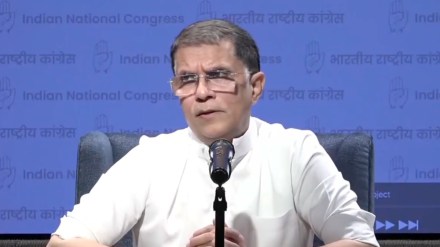The Congress party has launched a blistering attack on the Narendra Modi-led central government, alleging a complete collapse of India’s foreign policy following Operation Sindoor. The opposition party claims that India’s global standing has suffered, while Pakistan, often accused of harbouring terrorism, is reaping diplomatic and financial benefits.
Pakistan’s rise in UNSC raises eyebrows
The most major turn of events, as per Congress, is Pakistan’s ascension within the United Nations Security Council. Pakistan will chair the Taliban Sanctions Committee in 2025 and serve as Vice-Chair of the Counter-Terrorism Committee—two of the most critical UN bodies for global peace and anti-terrorism efforts.
“The country that harbours and protects the Taliban now heads a UN committee meant to sanction it. What kind of global irony are we witnessing?” asked a senior Congress leader Pawan Khera.
According to Congress, the Modi government’s foreign policy, instead of isolating Pakistan, has inadvertently led to its global reintegration and validation.
What Khera said on India’s foreign policy?
Khera was at the forefront of the attack, accusing the BJP government of enabling Pakistan’s resurgence on the world stage. Taking to social media platform X, Khera laid out a detailed timeline suggesting that global institutions and powers have, in fact, rewarded Pakistan in the wake of Operation Sindoor.
“IMF gave $1 billion to Pakistan on May 9 during Operation Sindoor. The World Bank is planning to give $40 billion. The ADB approved $800 million on June 3. And now, Pakistan is elected as Chairman of the UNSC Taliban Sanctions Committee and Vice Chairman of the UNSC Counter Terrorism Committee,” Khera posted.
He called it a “sad story of our own foreign policy collapse” and questioned how the global community could allow this “continuous legitimisation of sponsorship of terrorism.”
India raised alarm over aid to Pakistan
Responding to growing financial aid commitments to Pakistan by global institutions, the Indian government has formally raised objections, especially targeting the Asian Development Bank (ADB). Senior Indian officials revealed that New Delhi urged the ADB to halt further fund disbursal to Islamabad, voicing concerns over misuse of money—particularly for military expenditure.
The $800 million ADB program, ostensibly aimed at enhancing Pakistan’s fiscal sustainability and public financial management, drew skepticism from Indian quarters. “There is a serious possibility that these funds could indirectly support activities that harm regional stability,” an official stated.
Congress blasts government silence
Last week, Khera pointed out that no major country openly supported India during Operation Sindoor. “No nation called Pakistan a terrorist state. Kuwait lifted visa restrictions, Gulf nations signed MoUs, and shockingly, Russia signed a $2.6 billion deal to revive Pakistan Steel Mills,” he said.
The Congress argued that such developments were not coincidental but symptomatic of India’s shrinking diplomatic leverage. “We launched Operation Sindoor expecting global backing. Instead, the world rewarded Pakistan,” Khera added.
India questions IMF’s bailout strategy
India had also opposed the IMF’s recent $1 billion bailout to Pakistan, cleared during the height of Operation Sindoor. In addition, the IMF approved a $1.4 billion credit line for climate resilience in Pakistan. Indian diplomats questioned whether these funds could be misappropriated to fuel Pakistan’s state-sponsored terrorism.
New Delhi voiced its objection at the IMF board meeting in Washington, citing the absence of adequate safeguards. “Support to Pakistan without monitoring terror-financing risks sets a dangerous precedent,” an Indian official warned.
India eyes FATF ‘Grey’ list for Pakistan
India is now reportedly planning to push for Pakistan’s re-listing on the grey list of the Financial Action Task Force (FATF), which monitors global financial crimes including terror financing and money laundering.
